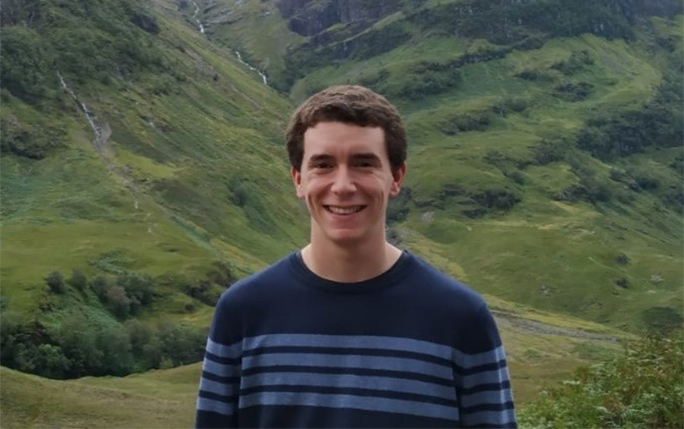Ricardo Gonzalez’s industry placement at Unilever

Placements offer the opportunity to experience the workplace environment and how workplace practices differ from academic ones. They also provide the chance to apply your skills in a new setting, solving new problems alongside a new group of people. The LIV.DAT CDT incorporates a 6 month placement for its students, allowing them some industrial experience to implement their big data training and broaden their PhD experience.
LIV.DAT student Ricardo Gonzalez works on new heavy gauge boson searches and interpretations at the ATLAS experiment, one of the main detectors at LHC. In early 2020, he was given the opportunity to apply the experience and skills acquired during his PhD at a placement with Unilever, based at the Materials Innovation Factory (MIF) at the University of Liverpool. The centre bridges industry partners like Unilever with the University’s expertise in material chemistry, tackling common challenges in academia and industry to deliver innovative products.
During the placement, Ricardo worked on bringing Machine Learning techniques to two of the robots at MIF to reduce the amount of manual input required in their image processing system. This would not only produce a more objective image analysis framework that does not depend on the user’s perception, but also significantly reduce the amount of time analysers have to spend on tedious tasks that need to be repeated over a thousand times per experiment.

Ricardo Gonzalez
The project has been split into two contributions:
- to develop an algorithm to detect the height and density of the foam produced by different cleaning hygiene product;
- the setup of a framework to detect and report anomalies in fabric cleaning tests.
Using the latest developments in instance segmentation (computer vision technique consisting of boundary identification at pixel level), both projects were successfully completed including testing, deploying and validating the new algorithms with the help of experienced users.
Ricardo said about his placement: “It has been a very enriching experience. It was a challenging task, especially considering what a complicated year 2020 has been, but it has been a good opportunity to bring new uses to techniques I had seen applied for scientific purposes only. The pandemic hit in the early days of my placement, so I could only take a glimpse at what it was like to work at Unilever’s offices, but thankfully the project could easily be carried out remotely and Andrew, my supervisor at Unilever, has been very supportive so the development was unaffected.”
“I’ve learnt a lot during these months, not only programming skills I didn’t have before, but also knowing what is like to program something that will be used by someone else, getting to know the developer-user feedback cycle, as well as how working in industry differs from working in academia”.